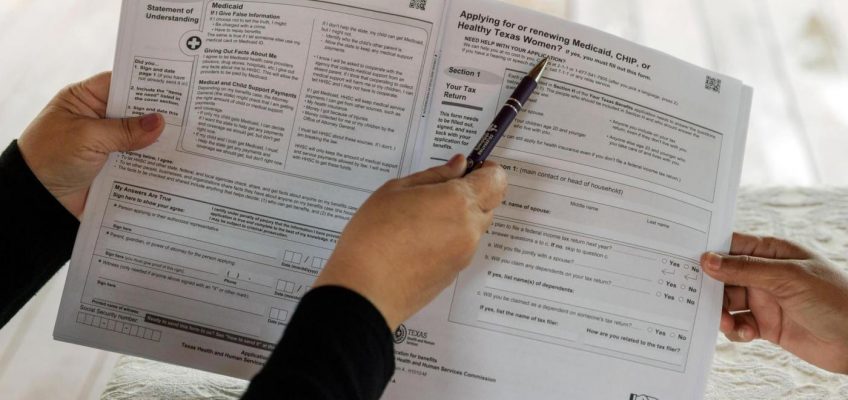As changes to Medicaid funding and enrollment requirements come into effect over the next few years, the Minnesota Department of Human Services estimates that 140,000 Minnesotans will lose their coverage, officials said Monday.
“That’s about 12% of current program enrollment,” said John Connolly, state Medicaid director and DHS deputy commissioner.
The state’s latest analysis of the impacts of the sweeping Republican-authored tax and spending bill, signed by President Donald Trump on July 4, predicts that, over the next four years, Minnesota will lose $1.4 billion in federal funding.
“We actually expect those losses to get bigger over time, as well,” Connolly said.
Medicaid — which in Minnesota is called Medical Assistance — is a state-federal health insurance program for lower-income Americans, particularly children, disabled adults and those who are pregnant. Some states, including Minnesota, have expanded Medicaid access for adults whose incomes are no more than 138% of the Federal Poverty Guidelines.
Two provisions in the federal bill will result in loss of Medicaid coverage, Connolly said. One is the new community engagement requirement, set to go into effect Jan. 1, 2027. Certain enrolled adults (under age 65, with no children or disabilities) must report at least 80 hours per month spent working, doing community service or seeking employment.
“We at DHS call this a work reporting requirement, because the large majority of people who are working age in the Medicaid program, presently, work or will be exempt from the work reporting requirement,” Connolly said. “The new requirement, ultimately, here is the reporting part.”
The other provision that is expected to lead to disenrollment is more frequent eligibility renewals. Instead of reviewing one’s Medicaid eligibility every 12 months, beginning Dec. 31, 2026, Medicaid recipients must submit documents every six months to verify that they qualify for coverage.
“This increases churn in the program, meaning that people will lose coverage because they can’t complete the paperwork (though they) may be eligible,” Connolly said.
Those covered under expanded Medicaid could see “the majority of the impact” of disenrollment, Connolly said, as they are subject to the new eligibility renewal and work reporting policies.
Those additional requirements will come at a higher cost for county and tribal governments, which process those documents.
“We expect that impact actually could be, at minimum, $160 million,” Connolly said. “They’ll have to leverage a bunch of new and different data sources that they may not be assessing right now, in addition to paper-based information, which is labor-intensive.”
DHS also estimates that hospitals will have to cover more uncompensated health care as the result of two other provisions in the bill: reduced Emergency Medical Assistance funding and a shorter retroactive coverage period.
“Retroactive coverage is for people who come in for care without health insurance, but are and have been eligible for Medicaid,” Connolly said. “Once they’re enrolled, Medicaid can cover care they received within the past 90 days.”
But starting in 2027, that retroactive period will only be one month for adults without children and two months for other Medicaid recipients. DHS estimates that change will lead to $31 million fewer federal dollars and a $9 million reduction in state spending each year.
While many changes to Medicaid are scheduled to take effect in the coming years, one immediate effect is a one-year prohibition on Medicaid funding for reproductive health care providers that perform abortions. In Minnesota, that amounts to $154 million less in fiscal year 2026.
On Monday, a federal judge in Massachusetts indefinitely blocked the Trump administration from enforcing the policy, which mainly affects Planned Parenthood clinics.
How the projected loss of federal Medicaid dollars will affect the state’s budget, Connolly said, is still being measured. Facing a future shortfall, Minnesota lawmakers, in June, passed their 2026-27 budget with some cuts, including $300 million from the human services budget. The budget also rolls back MinnesotaCare coverage for undocumented adults.
“We’re still analyzing certain elements of the law and what their impact on the state budget could be,” Connolly said.
Related Articles
Delta pilot arrested on child sex abuse material charges after MSP-San Francisco flight
Authorities seek to file terrorism and assault charges against suspect in Walmart knife attack
Mountain lion bites 4-year-old on popular national park trail, injuring child
Alabama man’s death is ruled a homicide after police kneeled on his neck
Lisa Jarvis: When an HIV scientific breakthrough isn’t enough


Leave a Reply